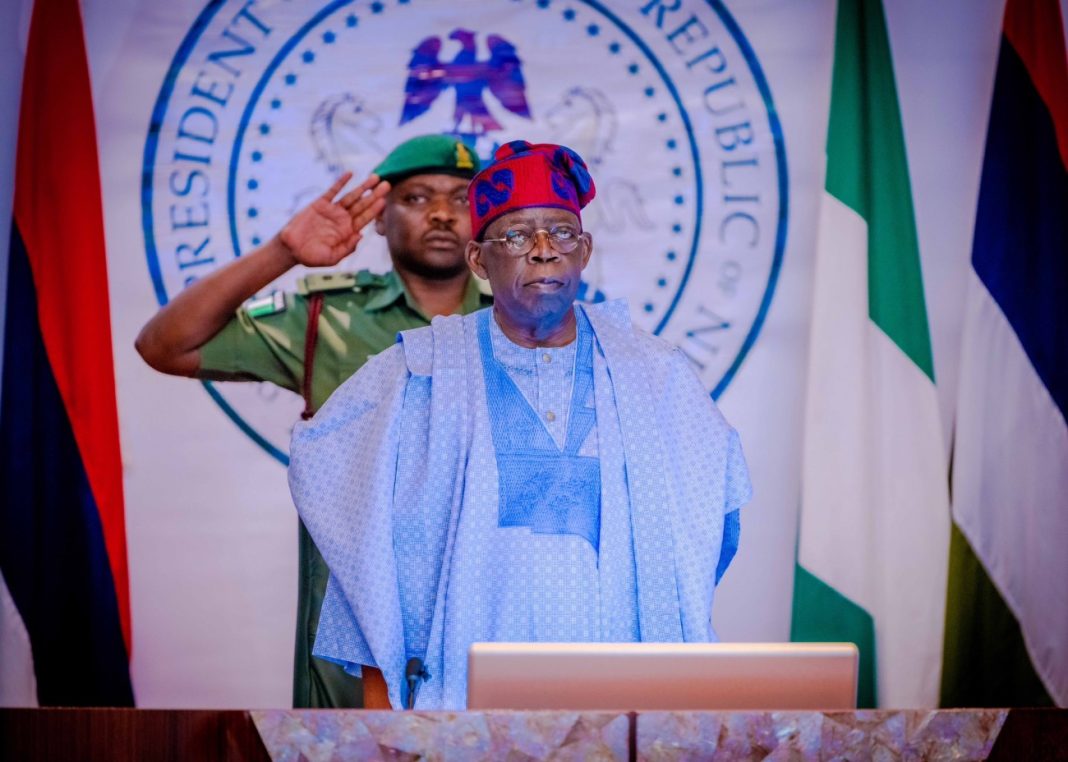ABUJA, Nigeria — In a move that has stirred a national debate, President Bola Tinubu has signed a bill reinstating Nigeria’s old national anthem, “Nigeria, We Hail Thee,” which was in use from 1960 to 1978.
This decision follows the accelerated passage of the bill by the House of Representatives and the Senate, prompting a variety of reactions from the public.
The House of Representatives fast-tracked the bill’s approval on May 23, with the third reading completed after Julius Ihonvbere, the House Majority Leader and sponsor of the bill, urged his colleagues to support it.
Ihonvbere emphasized that the reintroduction of the old anthem would promote national unity.
“We believe that the old anthem holds a special place in our history and can serve as a unifying factor for our diverse country,” Ihonvbere stated during the session.
On Tuesday, the Senate also passed the bill during a public hearing, and by Wednesday, President Tinubu had assented to it, making it law.
The old anthem, “Nigeria, We Hail Thee,” penned by British expatriate Lillian Jean Williams and composed by Frances Berda, will replace the current anthem, “Arise, O Compatriots,” which was composed by Nigerian Benedict Odiase and has been in use since 1978.
The reinstatement has sparked significant reactions across the country. Many Nigerians have expressed their displeasure, labeling the move as a “misplaced priority” amid other pressing national issues.
One Lagos resident remarked, “We have so many challenges facing us, and changing the national anthem should not be our focus right now.”
This decision aligns with a recommendation from the 2014 national conference convened by former President Goodluck Jonathan.
The conference, led by retired judge Idris Kutigi, suggested reverting to the old anthem, asserting that it better encapsulates themes of unity, peace, and prosperity compared to the 1978 version. However, the conference delegates did not support changes to the national flag or the country’s name.
Supporters of the old anthem believe it reflects a foundational period in Nigeria’s history and can foster a sense of national pride and cohesion.
During the review of the 2014 conference committee’s report, delegates who supported the resolution recited the old anthem on the floor, advocating its return as a means to promote national solidarity.
Despite the mixed reactions, the old anthem will now officially return, marking a significant cultural shift for Nigeria as it revisits a piece of its historical identity.
The government hopes that this change will inspire a renewed sense of national unity, even as the country continues to navigate its complex socio-political landscape.







